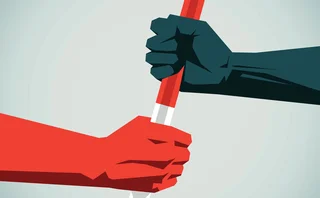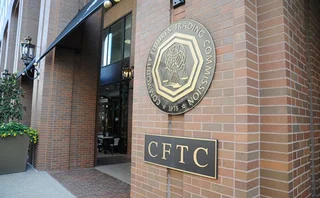
Cher of the blame: whose fault was the swaps push-out?
The question is not why provision died, but how it was ever born

A lot was written about section 716 of the Dodd-Frank Act when it was neutered in December last year, but ultimately Cher best summed up the prevailing mood – as has so often been the case in her long, successful career as a financial commentator.
In a series of tweets, Cher warned she would lose all respect for US president Barack Obama if he signed into law the funding bill that watered down the provision – better known as the swaps push-out or the Lincoln amendment.
She then gave her followers a quick overview of the dangers – "IN NEW BILL,BANKS CAN TRADE IN RISKY STOCKS AGAIN & IF THEY CRASH,U PAY 4 IT" – and also urged them to "GO Online,Read,Don't B SENT 2 The Slaughter House,Deaf,Dumb,& Blind Like LAST TIME".
None of this is intended as a knock against Cher – who is also known outside financial policy-making circles as an actress and singer. It is a good thing to see public figures getting involved in big, public debates. What's interesting is the gulf it highlights between the perception and the reality of the swaps push-out.
Its original sponsor, Blanche Lincoln, championed section 716 in 2010 stump speeches as "the toughest bill in Washington" and in its original form it probably was. In fact, it was so tough – barring federal assistance for any swap dealer and threatening the existence of the derivatives market – that it amassed an impressive cast of opponents, including President Obama, Federal Reserve chairman Ben Bernanke and US Treasury secretary Tim Geithner.
It is a good thing to see public figures getting involved in big, public debates
But it did not make it into law in that form. A last-ditch attempt to curb its scope succeeded, meaning banks would still be allowed to trade interest rate swaps as well as cleared credit default swaps, and derivatives on currencies, gold and silver. Would the US taxpayer stand to benefit by having equity derivatives, oil swaps and uncleared credit default swaps traded from bank affiliates? It's hard to imagine how.
The big question has always been how a bill that was such a bad idea – and was widely recognised to be a bad idea – made it on to the statute book at all. Those involved in its birth chalk it up to an unusual alignment of the stars: staffers who were intent on radical reform, a senator who needed to grab the public's imagination, and a political climate in which no-one was willing to risk openly opposing an anti-bank measure.
It is exactly the kind of thing the legislative process is supposed to guard against. Here, it failed. To quote another of Cher's comments on the matter, WTF!
Only users who have a paid subscription or are part of a corporate subscription are able to print or copy content.
To access these options, along with all other subscription benefits, please contact info@risk.net or view our subscription options here: http://subscriptions.risk.net/subscribe
You are currently unable to print this content. Please contact info@risk.net to find out more.
You are currently unable to copy this content. Please contact info@risk.net to find out more.
Copyright Infopro Digital Limited. All rights reserved.
You may share this content using our article tools. Printing this content is for the sole use of the Authorised User (named subscriber), as outlined in our terms and conditions - https://www.infopro-insight.com/terms-conditions/insight-subscriptions/
If you would like to purchase additional rights please email info@risk.net
Copyright Infopro Digital Limited. All rights reserved.
You may share this content using our article tools. Copying this content is for the sole use of the Authorised User (named subscriber), as outlined in our terms and conditions - https://www.infopro-insight.com/terms-conditions/insight-subscriptions/
If you would like to purchase additional rights please email info@risk.net
More on Dodd-Frank Act
US Treasury hands CCP resolution powers to FDIC
Mnuchin regulatory review explicitly refers to FDIC as receiver under a Title II resolution
Treasury review not rollback of reforms – CFTC counsel
Trump order is a chance to ease some rules and promote cross-border regulatory deference
Industry pushes CFTC to prioritise cross-border clarity
Approaching Mifid II deadline adds urgency to Giancarlo’s overhaul of Sef rules
Final US position limits rule will take ‘at least a year’
CFTC expected to draft a narrow list of contracts in scope
Covered funds seen as starting point for Volcker rule reform
Inter-agency consensus may prove more elusive on altering prop-trading definitions
US gives 21 banks another year to solve resolution problems
Banks including Societe Generale, Santander and BNP Paribas have until end-2018 to file plans
Bailout obsession holds back US CCP resolution regime
Dodd-Frank leaves legal uncertainty, but proposed alternatives could be even worse
Fed paper reignites debate on bank capital ratios
US industry association criticises official analysis suggesting optimal Basel ratios of up to 26%
Most read
- Top 10 operational risks for 2024
- Top 10 op risks: third parties stoke cyber risk
- Japanese megabanks shun internal models as FRTB bites








